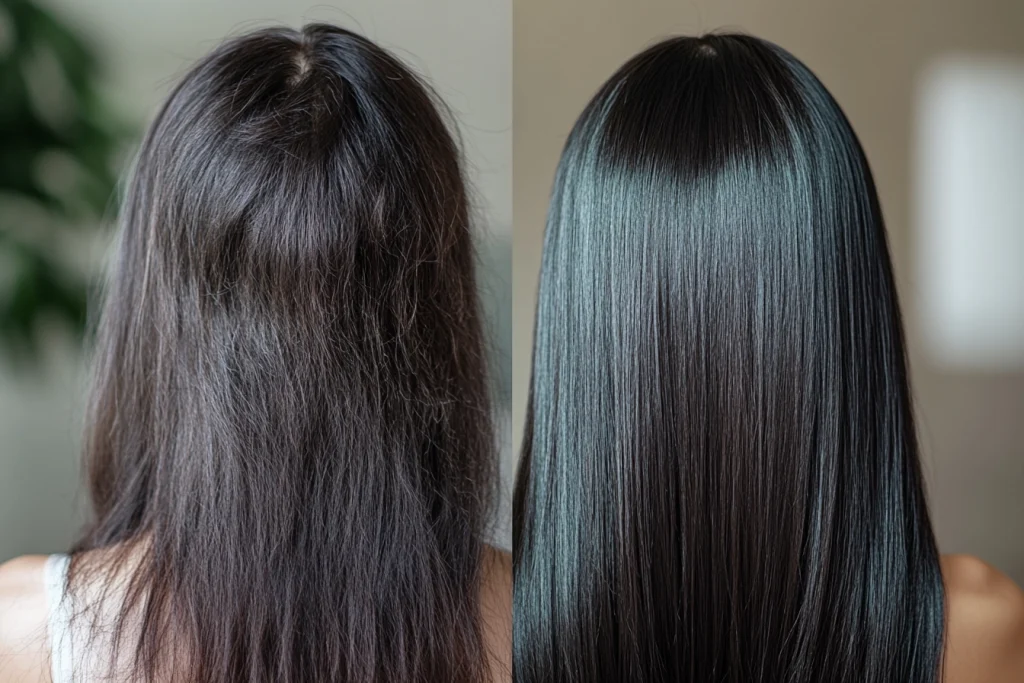Biotin’s Role in Promoting Hair Growth
Biotin, a well-known B vitamin, is often used to enhance hair, skin, and nails. While taking biotin supplements can be beneficial, it’s important to ask-why does your body need extra biotin in the first place?
Your body can obtain biotin from food, but it’s also naturally produced by your gut microbiome. If your gut bacteria are out of balance-especially after taking antibiotics-biotin production may decrease, potentially leading to hair problems. This explains why some people notice improvements while taking biotin supplements, but their hair issues return once they stop.
Other factors can also contribute to biotin deficiency. Eating raw egg whites, for example, can interfere with biotin absorption because they contain a protein that binds to it. Cooking egg whites neutralizes this effect, making biotin available for absorption. Alcohol consumption is another factor, as it can damage the liver and disrupt biotin absorption.
Top Food Sources of Biotin for Hair Health:
- Liver – One of the richest natural sources.
- Egg yolks – High in biotin, but remember to cook the whites.
- Nutritional yeast – A plant-based option with high biotin content.
- Salmon – Offers both biotin and healthy fats for hair health.
Additionally, magnesium plays a crucial role in biotin absorption, and many people are unknowingly deficient in it. Zinc and copper also work alongside biotin to support hair health.
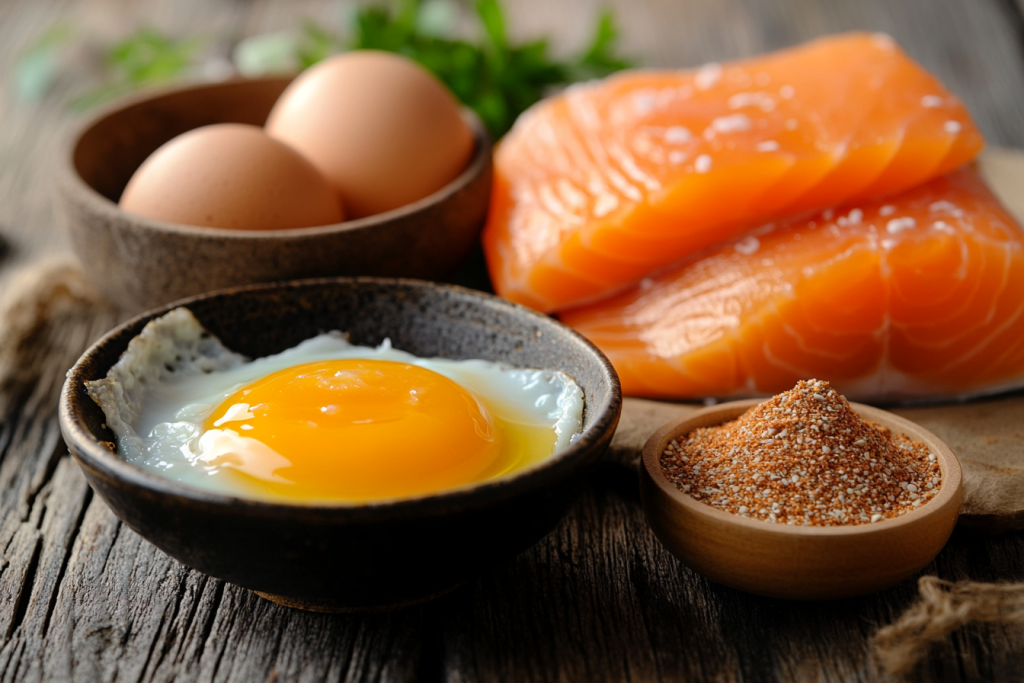
Vitamin A: Essential for Healthy Hair
Vitamin A is another critical nutrient, particularly in its active form, retinol, which is found only in animal products. This vitamin is essential for regulating sebum production, the natural oil that keeps hair soft and shiny.
Foods Rich in Vitamin A for Hair Growth:
- Liver – The highest concentration of retinol.
- Egg yolks – Also provide biotin.
- Shellfish – A great alternative for seafood lovers.
- Cod liver oil – Contains both vitamin A and omega-3s.
When vitamin A levels are low, the scalp may become dry, leading to brittle hair. Since vitamin A also interacts with copper in the body, a deficiency in one can affect the other.
Omega-3 Fatty Acids: The Key to Strong, Shiny Hair
Omega-3 fatty acids are essential for hair thickness and shine. However, many modern diets contain too much omega-6 (found in vegetable oils like corn and soybean oil), which competes with omega-3s and can lead to inflammation. Reducing omega-6 intake and increasing omega-3 consumption can have significant benefits for hair health.
Best Sources of Omega-3 for Hair Health:
- Fish oils – High in essential fatty acids.
- Cod liver oil – Also contains vitamins A and D.
- Fatty fish – Such as salmon, sardines, and mackerel.
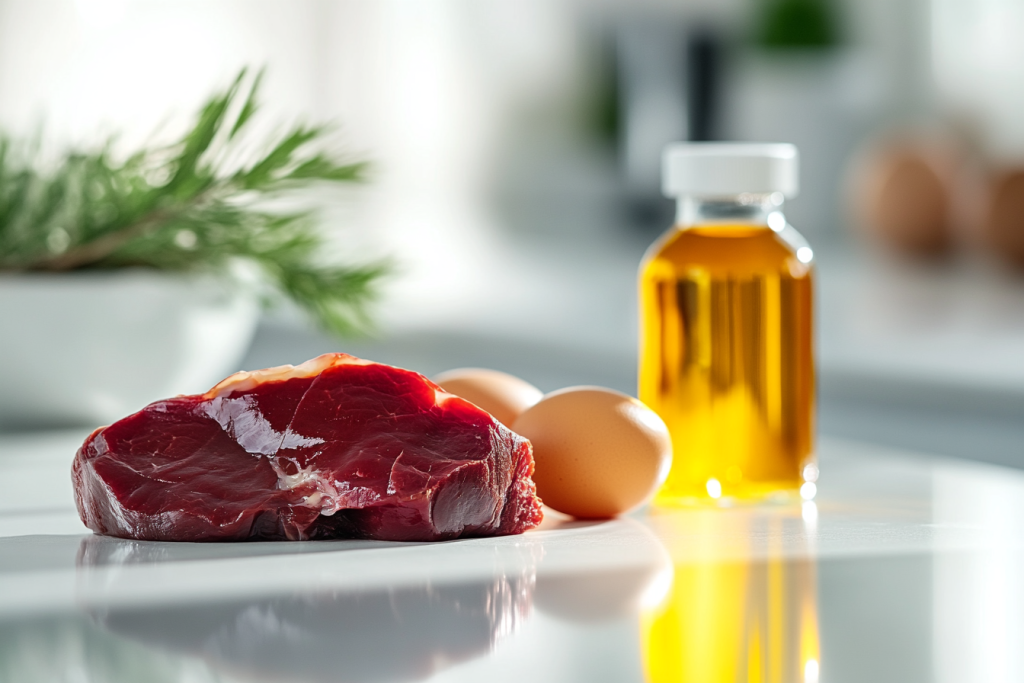
L. Reuteri and Its Benefits for Hair Growth
Lactobacillus reuteri, a probiotic bacteria, plays an essential role in gut health. Research shows that L. reuteri helps stimulate sebum production, keeping hair naturally glossy. Unfortunately, this beneficial bacteria is missing in nearly 96% of the population, largely due to the widespread use of antibiotics.
- Eat fermented foods – Kefir, sauerkraut, and kimchi naturally contain probiotics.
- Avoid excessive antibiotic use – This helps preserve beneficial gut bacteria.
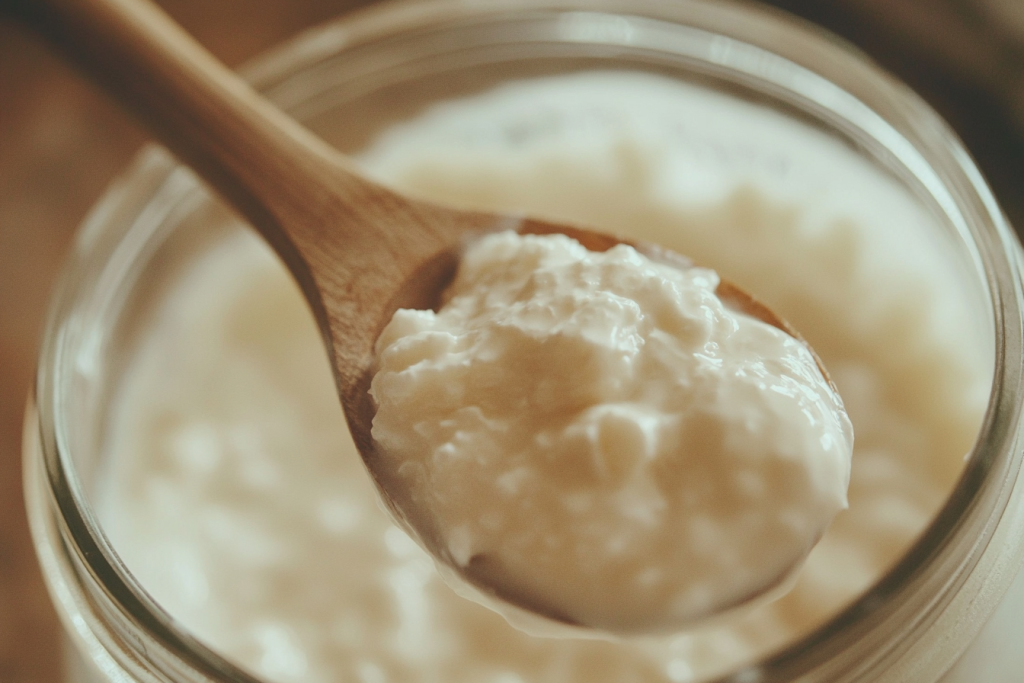
Copper: The Overlooked Mineral for Hair Strength
Copper is involved in numerous enzyme functions, one of which helps regulate iron levels in the body. Since iron plays a key role in delivering oxygen to hair follicles, maintaining a balance between these minerals is vital for hair growth.
Many people unknowingly develop copper deficiencies due to modern farming practices. Excessive use of nitrogen-based fertilizers depletes copper from the soil, which then affects the nutritional content of plants and the animals that consume them. If livestock don’t receive enough copper, their coats become dull and brittle—just like what happens to human hair when copper levels drop.
Understanding Copper Deficiency and Its Effects on Hair
- Overconsumption of iron – Many grains and processed foods are fortified with iron, which can block copper absorption.
- Low-fat diets – Vitamin A and copper work together; cutting out fats can reduce vitamin A levels, leading to copper imbalances.
- Excessive zinc supplementation – High zinc intake over time can deplete copper stores.
Foods High in Copper for Healthy Hair
- Liver – The most concentrated source.
- Shellfish – Oysters and mussels contain significant amounts.
- Dark chocolate – A plant-based source with additional health benefits.
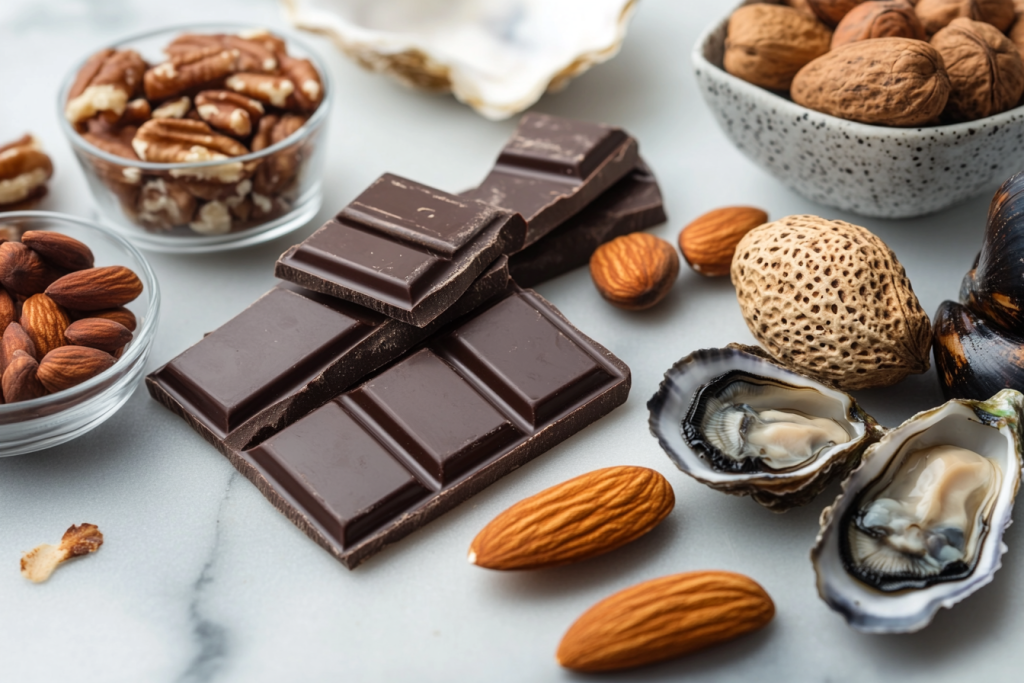
Crafting the Perfect Diet for Hair Health
By now, it’s clear that nutrients work together to support hair growth. Instead of relying on supplements, focus on consuming nutrient-rich whole foods that naturally contain these essential vitamins and minerals.
Top Dietary Tips for Promoting Hair Growth:
- Incorporate probiotic foods – Sauerkraut, kefir, and kimchi help rebuild gut bacteria.
- Eat more liver – A powerhouse of biotin, copper, and vitamin A.
- Consume egg yolks – Provides biotin and retinol.
- Include cod liver oil – Supplies omega-3s, vitamin A, and vitamin D.
- Choose organic foods – Avoid pesticides like glyphosate, which disrupt nutrient absorption.
- Get trace minerals – Ensure a balanced intake of copper, zinc, and magnesium.
If you’re looking to optimize your hair health, start with these dietary changes.
